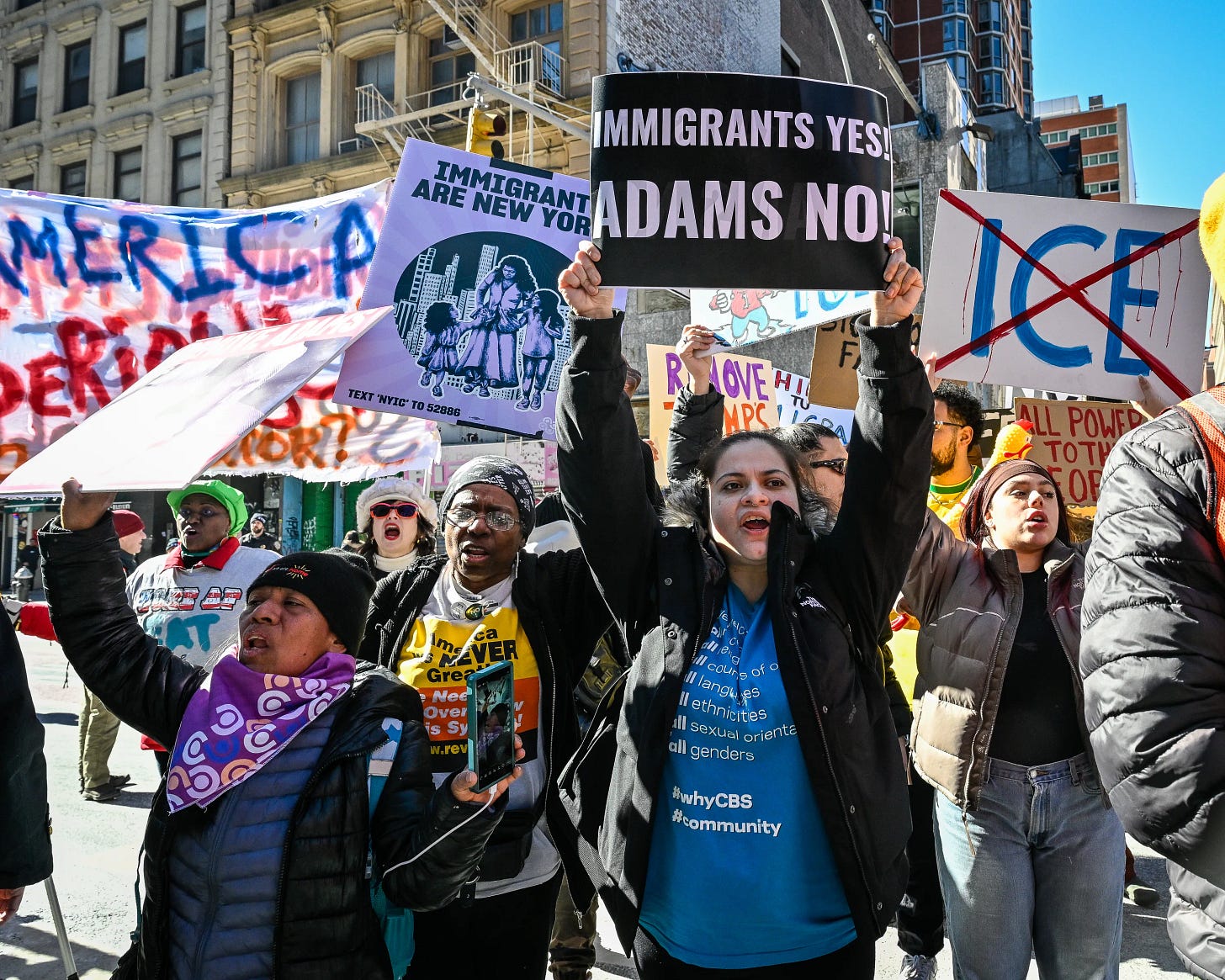Adams Set Free as Corruption Charges are Dropped Permanently: What It Means for New Yorkers
The Mayor cleared of charges and running for re-election as an independent, New Yorkers are left weighing what justice and leadership mean in their city.
A federal judge has dismissed the corruption charges against Mayor Eric Adams, marking a decisive legal victory for the Mayor and a conclusion to a saga that has loomed over City Hall for months. Yet the case’s closure and how it ended has left many New Yorkers with lingering concerns about the role of politics in the justice system and what this means for the city’s future.
On Tuesday, U.S. District Judge Dale E. Ho formally dismissed the federal indictment against Adams with prejudice, meaning the charges cannot be brought again. The decision came after the Department of Justice (DOJ), under the Trump administration, requested to drop the case without prejudice, citing the need for the Mayor’s cooperation on immigration enforcement.
Judge Ho pushed back on that rationale, warning that the government’s explanation raised “serious concerns.”
“Everything about the government’s explanation for why it seeks dismissal here smacks of a bargain,” Ho stated in a 78-page opinion. “Dismissal of the indictment in exchange for immigration policy concessions.”
The judge concluded that allowing the case to be dismissed while leaving the door open to refile later would be unfair and politically problematic.
The federal investigation into Adams began in 2023, when the FBI launched a probe into foreign fundraising in his 2021 mayoral campaign. Prosecutors alleged that Adams accepted illegal donations from individuals connected to the Turkish government, and that he used his influence to fast-track the opening of a new Turkish consulate in Manhattan.
In November 2023, the FBI seized Adams’ personal devices and searched the home of his campaign’s chief fundraiser, Brianna Suggs. Adams maintained throughout the investigation that he had done nothing wrong.
When the charges were announced in late 2024, it was the first time a sitting mayor of New York City had faced a federal corruption indictment. In February 2025, the department filed a motion to dismiss the charges, citing the need for Adams to remain in office to assist with federal immigration enforcement. The move reportedly caused friction within the Justice Department, and at least six prosecutors in the U.S. Attorney’s Office in Manhattan resigned in protest.
In his ruling, Judge Ho wrote that the court had “little choice” but to dismiss the case once prosecutors declined to go forward, but added that “the interests of justice” required the case to be dismissed with prejudice.
“The case against Eric Adams should never have been brought in the first place,” said Alex Spiro, Adams’ defense attorney. “Finally, today, that case is gone forever.”
While the legal case is over, the political fallout continues.
Last week, Adams announced he will seek re-election as an independent, not as a Democrat. The decision comes as he faces rising disapproval among Democratic voters and mounting challenges from progressive opponents.
According to a March poll from NBC New York, Adams’ approval rating dropped below 30 percent during the investigation. With several prominent Democrats expected to run in the June primary, Adams’ decision to skip it and go directly to the general election marks a dramatic shift in strategy.
“I have always put New York’s people before politics and party and I always will,” said Adams in a video message launching his new campaign. “I am running for mayor in the general election because our city needs independent leadership that understands working people.”
Though Adams has escaped a trial, the damage to public trust is far from repaired. The administration suffered multiple high-profile resignations during the probe and many city agencies were essentially paralyzed under the weight of uncertainty.
“I don’t know what to believe anymore,” said Maria De La Cruz, a Bushwick resident. “The whole thing feels dirty, like power protecting power.”
Other New Yorkers are ready to move on from this fiasco.
“He’s done more for public safety than most,” said Jamal Carter, a Bed-Stuy resident. “If the courts say he’s clear, let the man govern.”
The precedent set by this case raises serious questions about the independence of justice, the fragility of democratic norms, and whether accountability is still possible in America’s largest city.
As Adams barrels toward a re-election fight with no party, no safety net, and a bruised reputation, one thing is almost certain: New York voters will have the final say.


